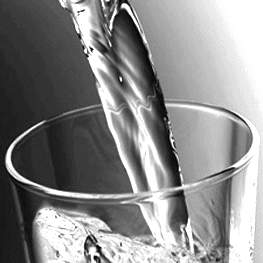Bottled bias probed
 Researchers have uncovered some of the reasons Australian love bottled water despite having some of the highest-quality tap water in the world.
Researchers have uncovered some of the reasons Australian love bottled water despite having some of the highest-quality tap water in the world.
Sydney Water commissioned Western Sydney University to research the decline in trust of tap water.
“Even though the bottled water markets don't explicitly criticise tap water, they undermine it by creating a new set of values around water in bottles,” Professor Gay Hawkins said.
“It just implies the water is somehow superior.”
The Australian Beverages Council says the consumption of bottled water has expanded in recent years largely due to consumers' preference for convenience, taste and rising health consciousness.
But Australia's governance of tap water is more strict than bottled water.
Water utilities must follow about 250 rigorous guidelines covering everything from metals to microbiology.
The national monitoring report shows nearly 100 per cent compliance with the guidelines.
The Water Services Association of Australia (WSAA), a major industry lobby, says Australia was a model for the World Health Organisation’s international guidelines.
“Australia is a world leader in that respect,” he said.
Professor Hawkins says many take Australia’s system for granted.
“They don't understand it and they certainly wouldn't take it for granted if they knew what it was like to live in a country where bad governance means there is unsafe water,” she said.
A recent WSAA survey found 60 per cent of people drink tap water, and those aged under 40 are far more likely to drink bottled water.
Women represent a higher proportion of bottled water drinkers than men, and Professor Hawkins says this is not surprising given the time and money spent targeting fitness-conscious females.
Additionally, Mandarin-speaking communities have been shown to demonstrate significant cultural resistance to drinking from the tap.
Professor Hawkins said most boiled drinking water, and also had different drinking practice sin general.
“That community liked to drink tea more than water,” she said.
“You can't say everyone has the same relationship to water utilities.”








 Print
Print